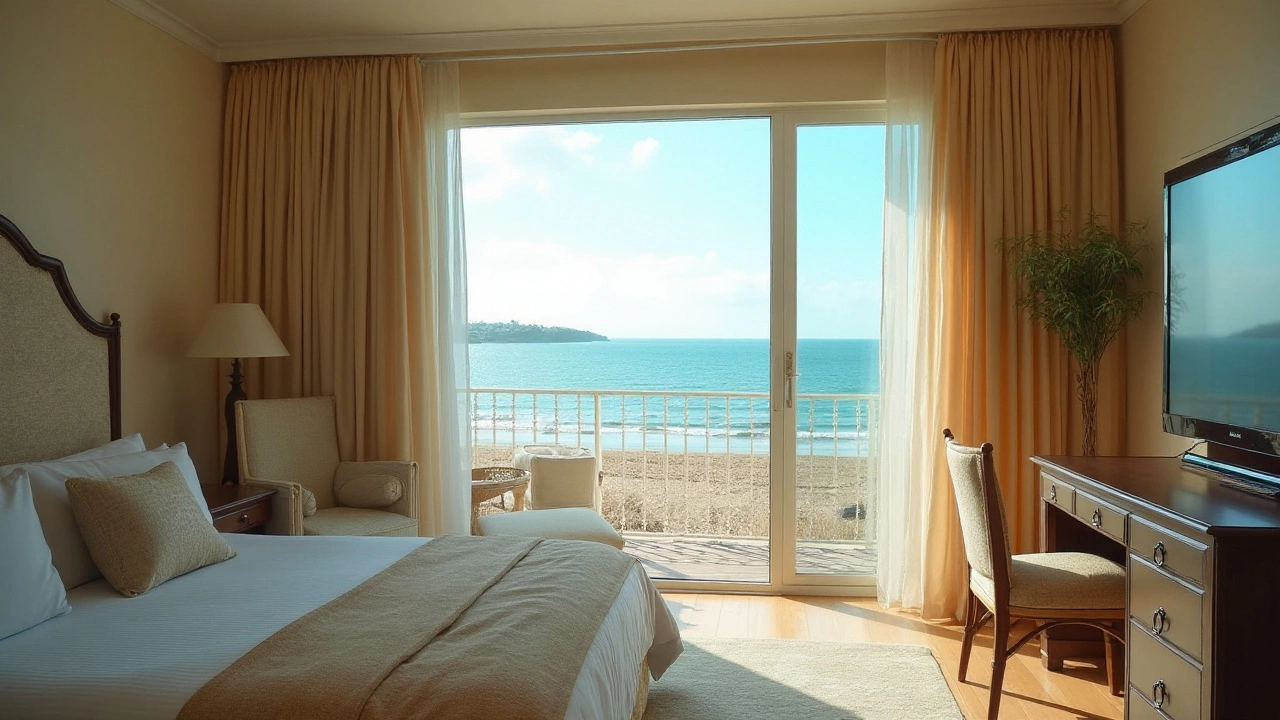Oceanfront Accommodations: How to Pick the Best Beach Stay
Planning a trip to the coast? You’ve probably noticed rooms that promise “oceanview” and others that brag about being “oceanfront.” The difference matters if you want the sound of waves at your doorstep. In this guide we’ll break down what oceanfront really means, why it can be worth the extra cost, and what to check before you hit ‘book.’
What Exactly Is an Oceanfront Accommodation?
"Oceanfront" means the property’s front door opens directly onto the sand or a promenade that runs right next to the water. You can step outside and feel the sea breeze without crossing a parking lot or a busy road. In the UK, many coastal villages – from Cornwall’s St Ives to Northumberland’s Bamburgh – offer cottages, boutique hotels, and even glamping pods that sit on the shoreline.
Contrast that with "oceanview," where the room looks out over the sea but a garden, road, or other building sits in between. Both give you a nice sight, but only oceanfront guarantees that you’ll hear the surf at night and have easy beach access.
Key Things to Look For When Booking
1. Direct Beach Access. Check the description for phrases like "private beach access" or "steps to the sand." If the listing mentions a walk of 5‑10 minutes, it’s likely not true oceanfront.
2. Noise Level. Being that close to the water means you’ll hear waves, gulls, and sometimes early morning walkers. If you prefer total quiet, look for rooms set a few meters back.
3. View Orientation. A facing‑west room catches stunning sunsets, while a north‑facing unit may get more sunrise light. Decide what time of day you’ll be in the room most.
4. Amenities. Many oceanfront cottages come with private decks, outdoor showers, or even a small barbecuing area. Hotels may offer beach towels, lockers, or on‑site surf rentals.
5. Weather Protection. Verify whether the property has windbreaks, raised flooring, or sturdy windows. Coastal weather can be breezy, and a well‑insulated room makes a huge comfort difference.
When you find a place that ticks most of these boxes, read recent guest reviews. Look for comments about sea‑level changes, tide timing, and any hidden fees for beach gear.
Finally, book early in the high season (June‑August) if you want the best selection and price. Many owners offer a modest discount for mid‑week stays or longer bookings – a good way to stretch your budget while still enjoying a beachfront location.
Whether you opt for a cosy seaside cottage in Devon or a boutique hotel on the Isle of Wight, the right oceanfront accommodation can turn a simple beach day into a memorable stay. Keep these tips in mind, compare a few options, and you’ll find a spot where the ocean is truly part of the room.
